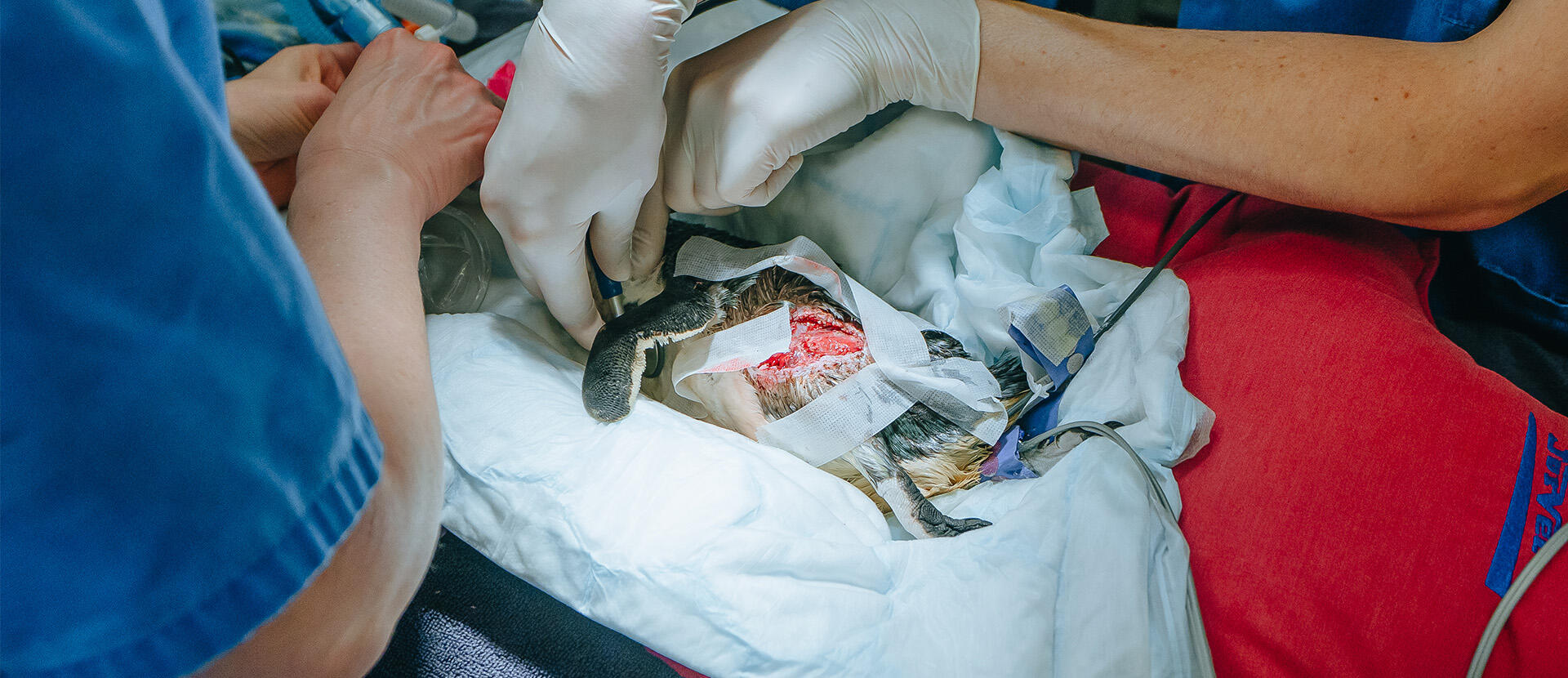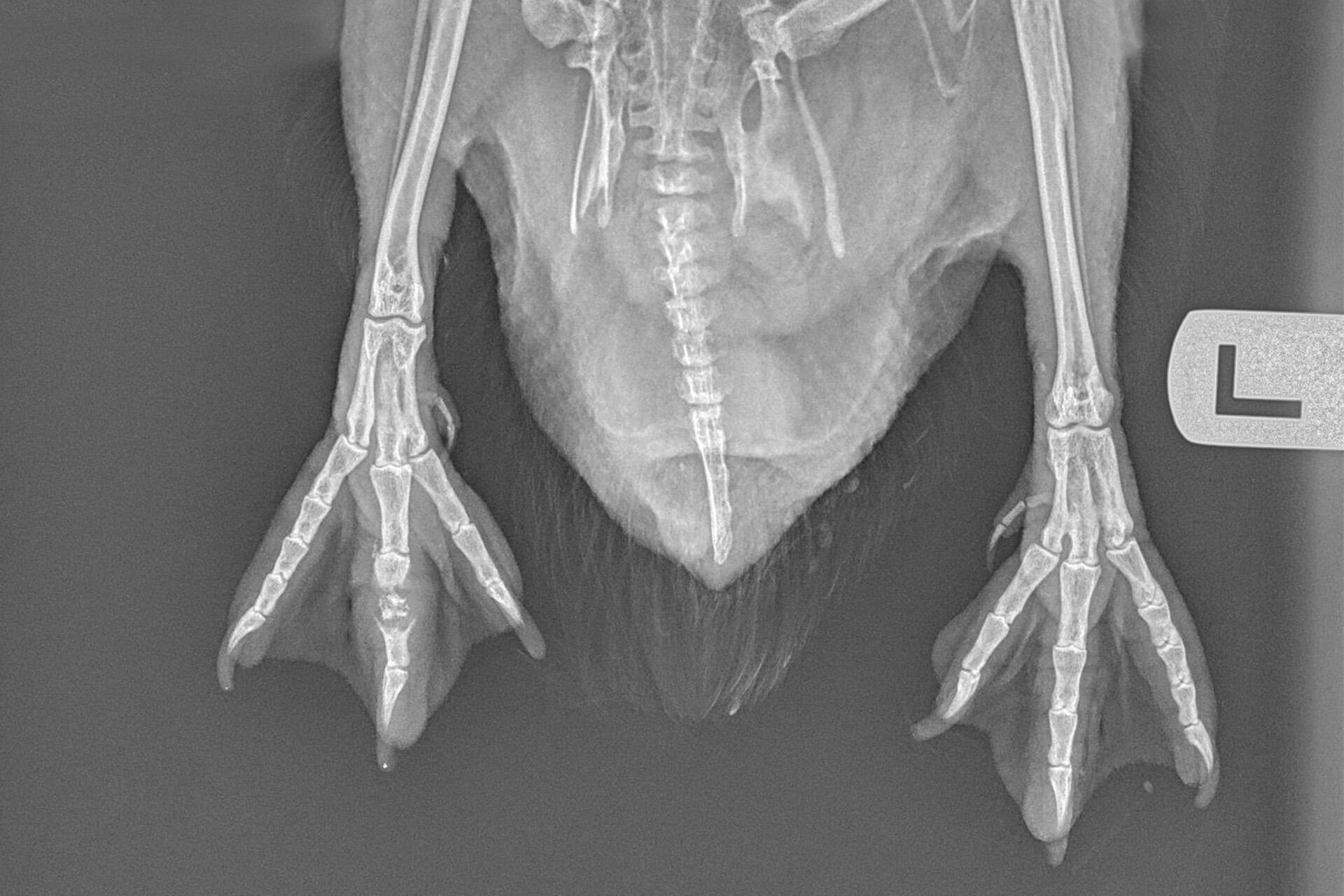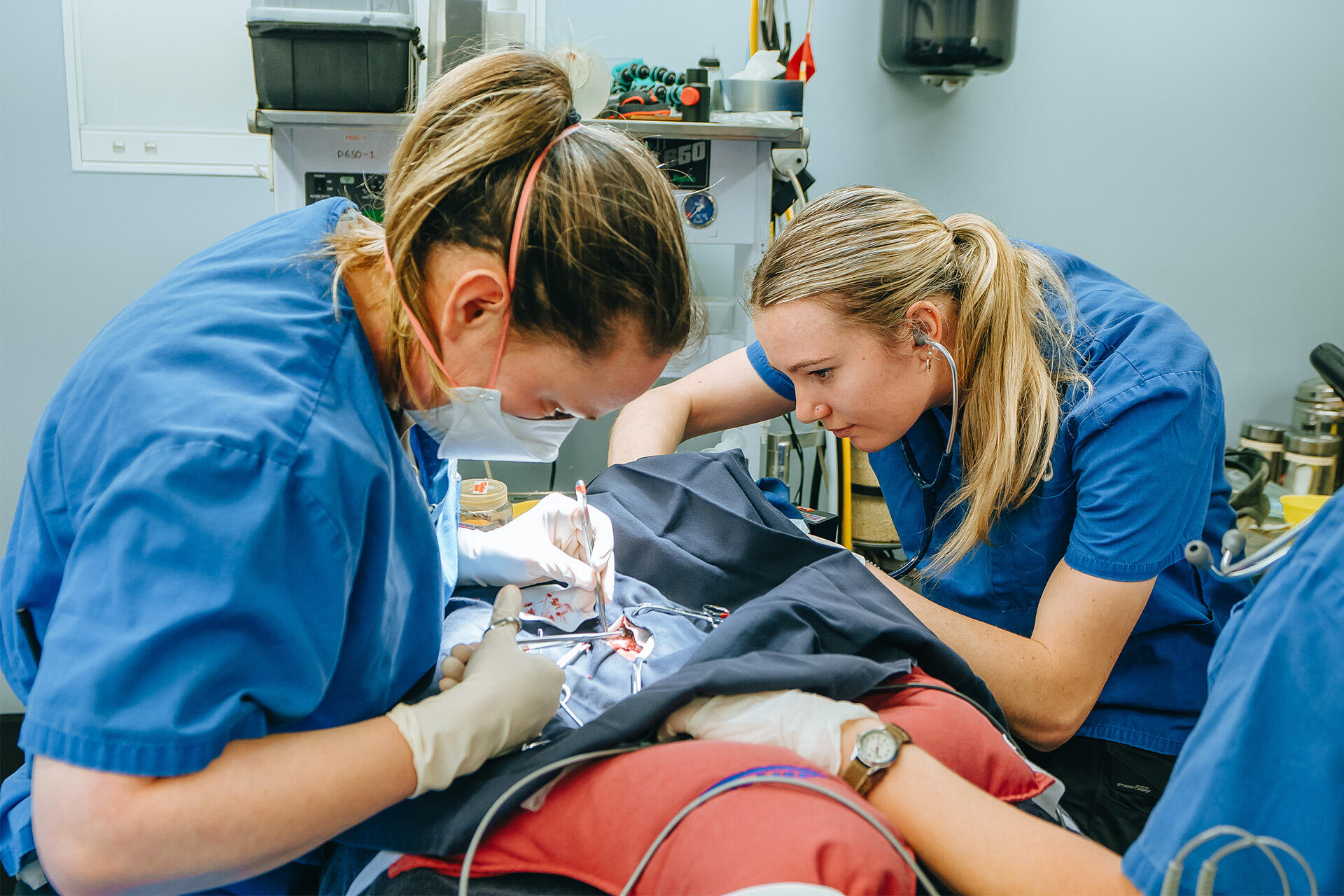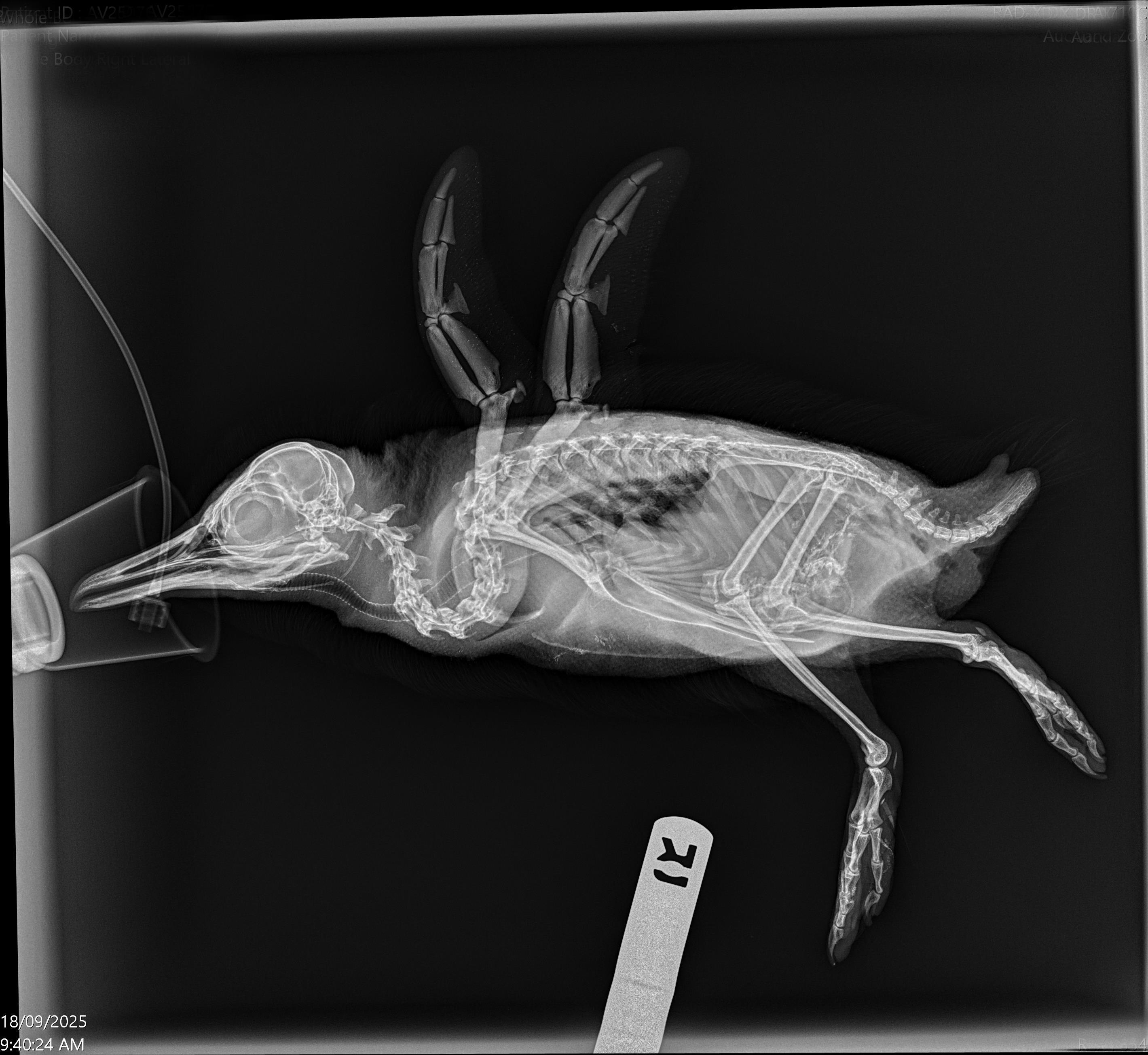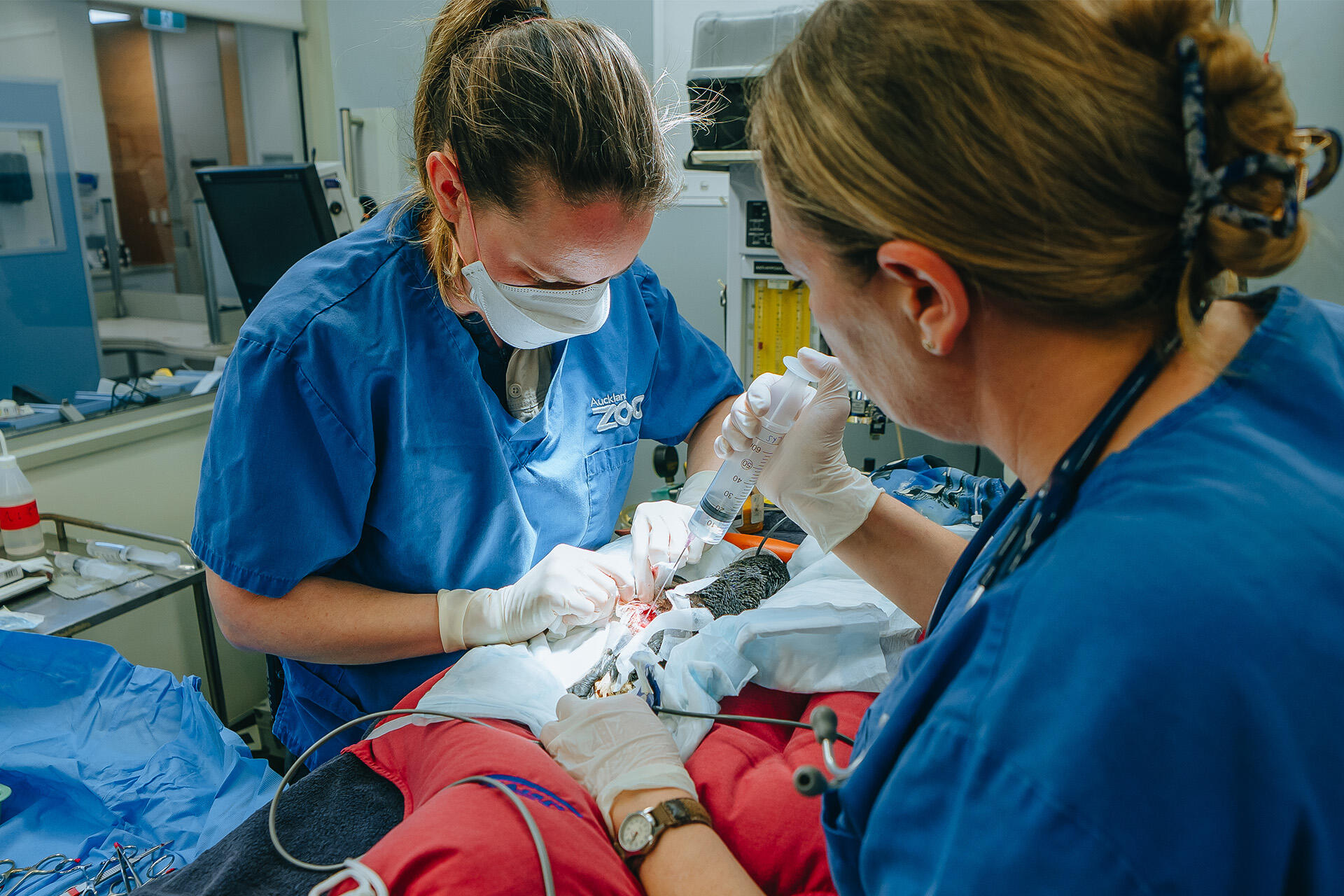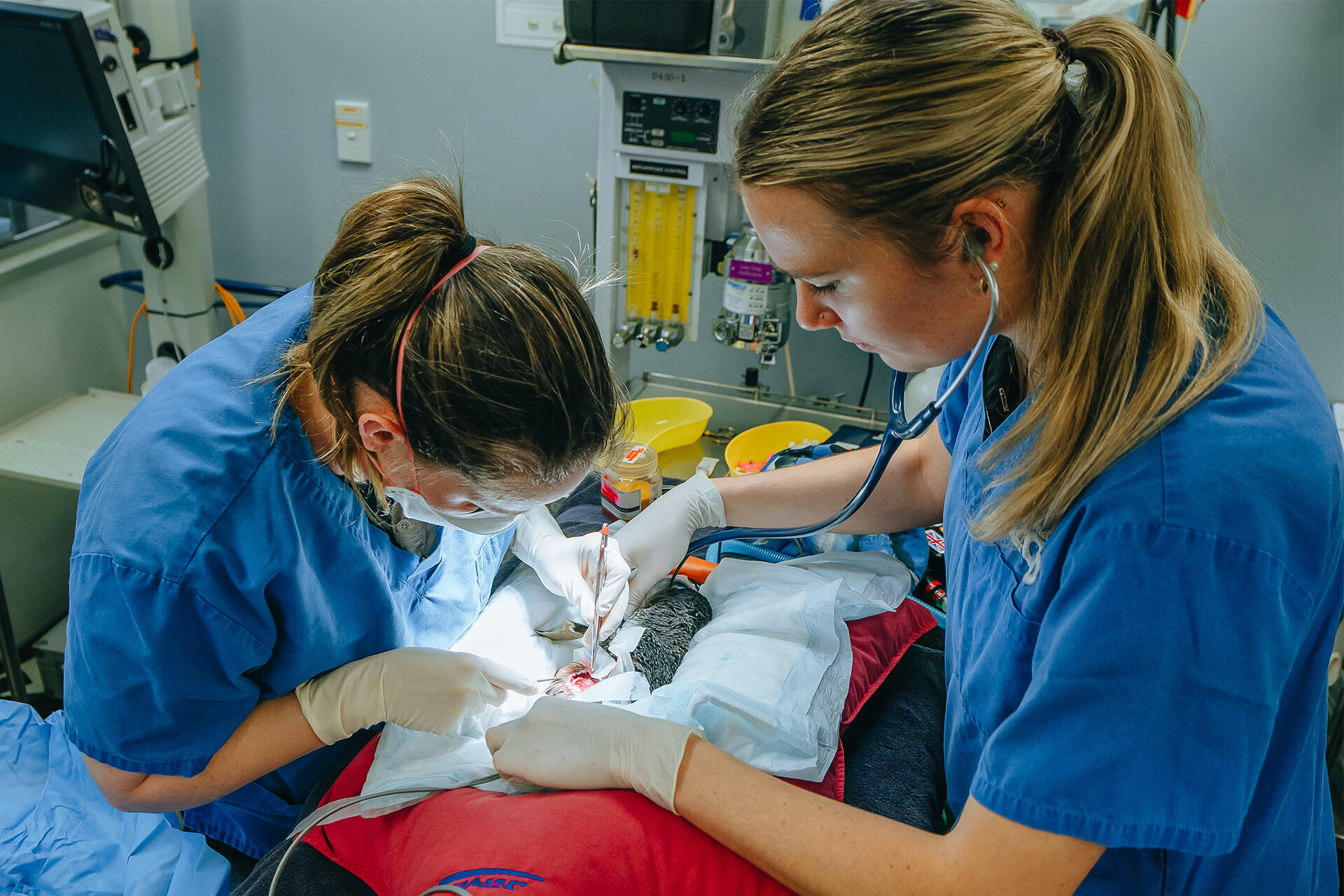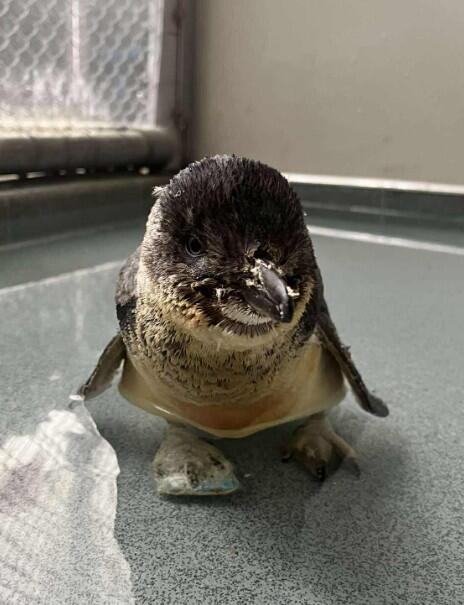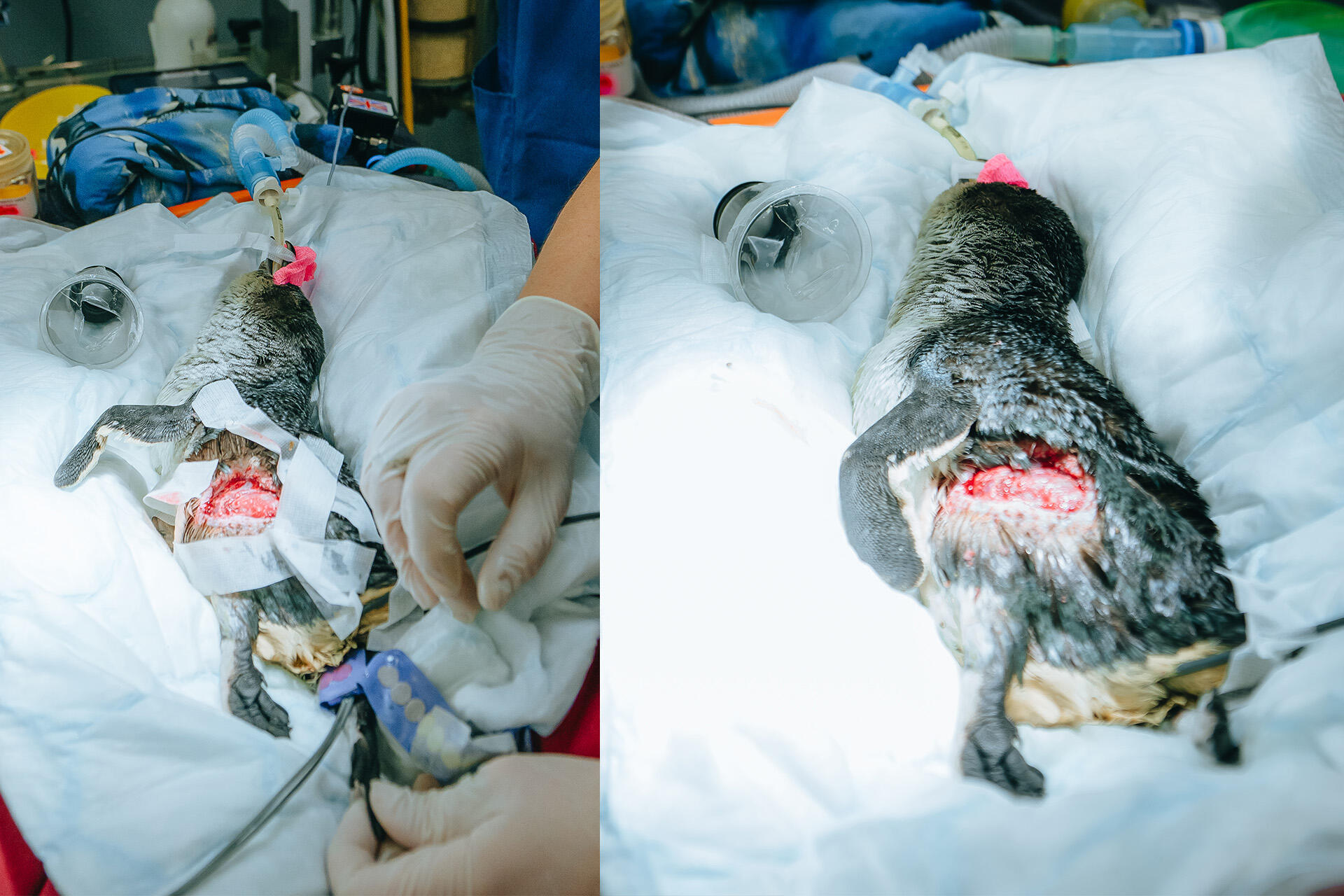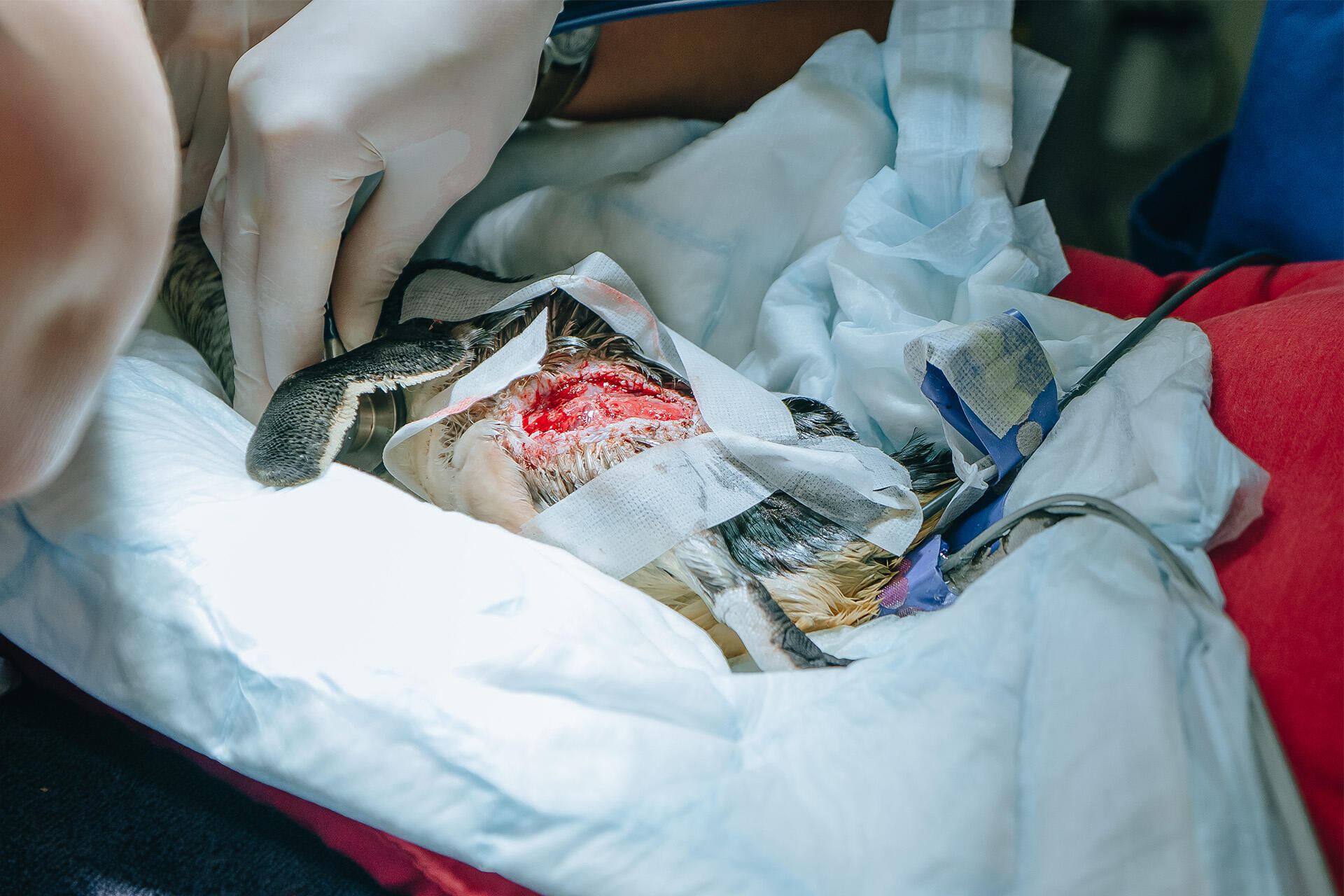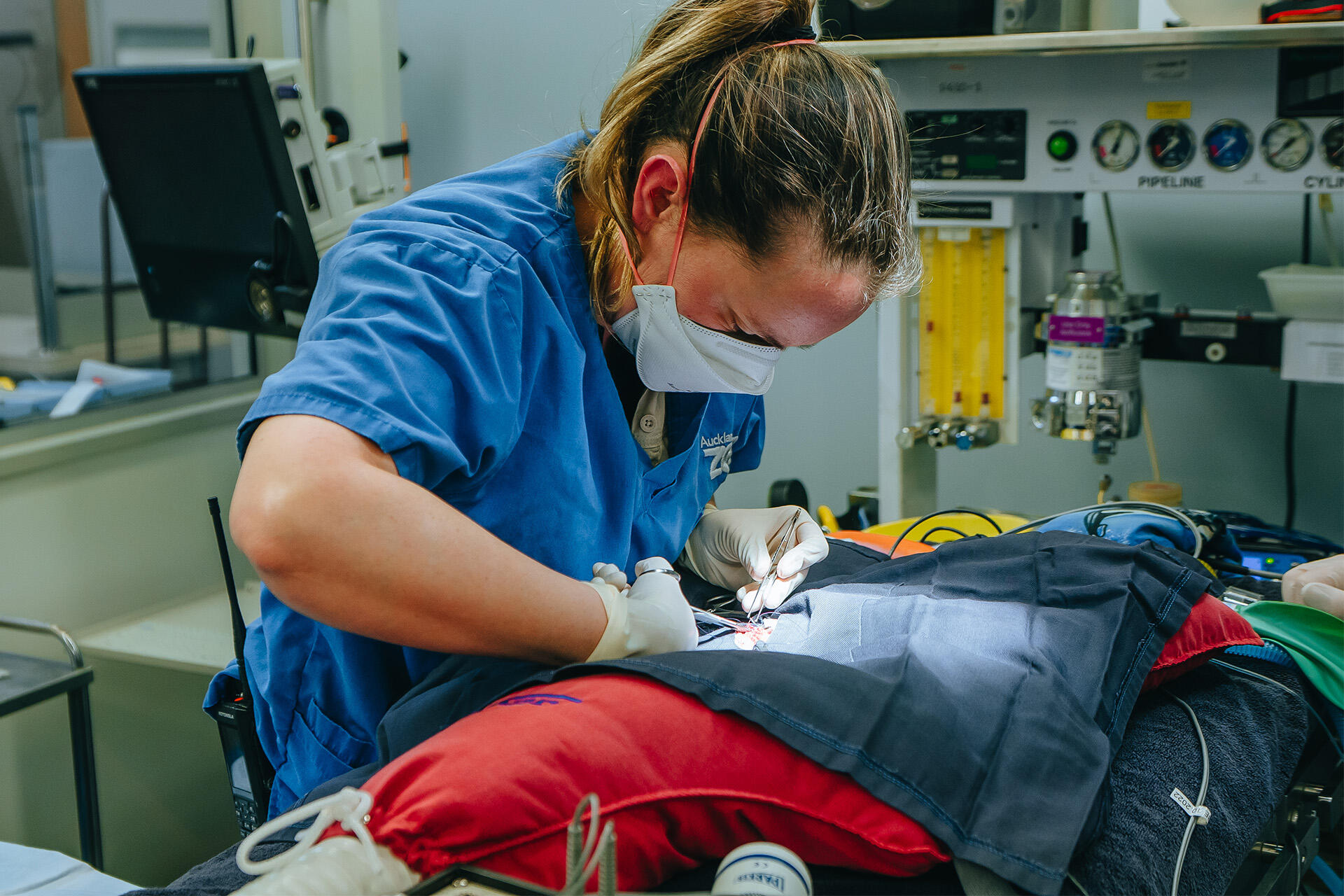Due to the severity of these wounds and the presence of infection, this patient has needed multiple surgeries. To ensure there was no debris left inside, the wounds were decontaminated and debrided before stitching them up. The deepest part of the wound on the body was right up against the ribs, so we’re thankful for the penguin that it wasn’t any deeper.
Despite antibiotics, the wounds on the right foot developed a severe infection of the bone. A sample of the bacteria was taken and grown in the lab to look for antibiotic resistance and guide further treatment. If antibiotics did not work, the infected bone would have needed to be surgically removed. Thankfully, with the change in treatments, we have seen great improvement and the bone is slowly healing! We’re hopeful that over the next few weeks the bone will continue to heal and we can remove the splint which is in place to protect it.
“Even the best-behaved family pets can be a bit too curious when they see a penguin on a beach! This is why it's so important to have dogs under control when they're in areas they share with our manu,” explains Zoo vet Sarah.
“So far it's healing well and is very enthusiastic about fish and we’re hoping it will put on much needed weight, as the caloric requirement for healing such big wounds is huge! We've been doing our best to keep its foot dry to help it heal but so far the penguin has had other ideas and is keeping our nurses on their toes.”
This wild patient is enjoying two feeds of fish per day and is recovering in a warm, quiet hospital enclosure. They’re not out of the woods yet but our veterinary team are hopeful this kororā can be healed and on its way back to the wild soon!


